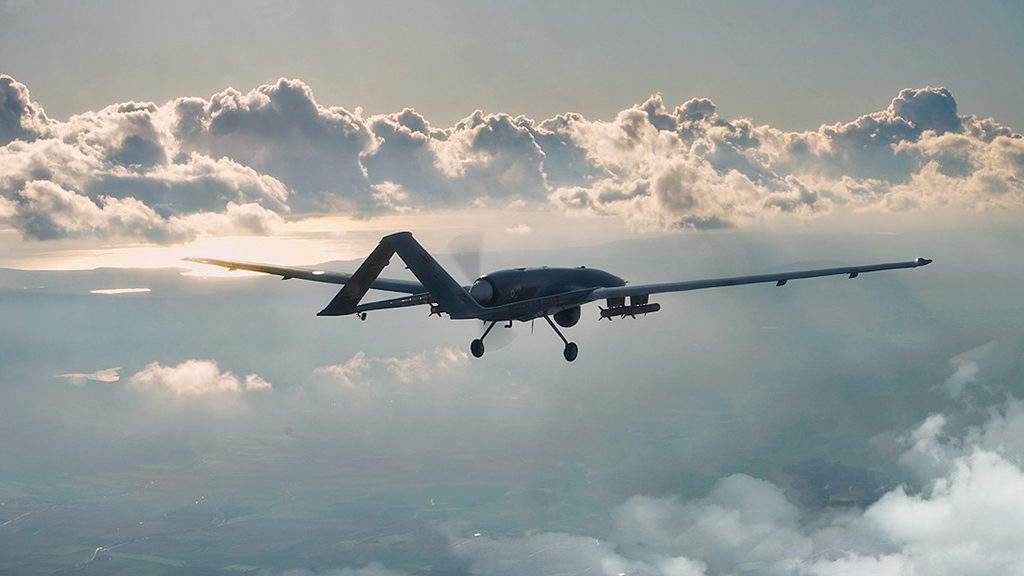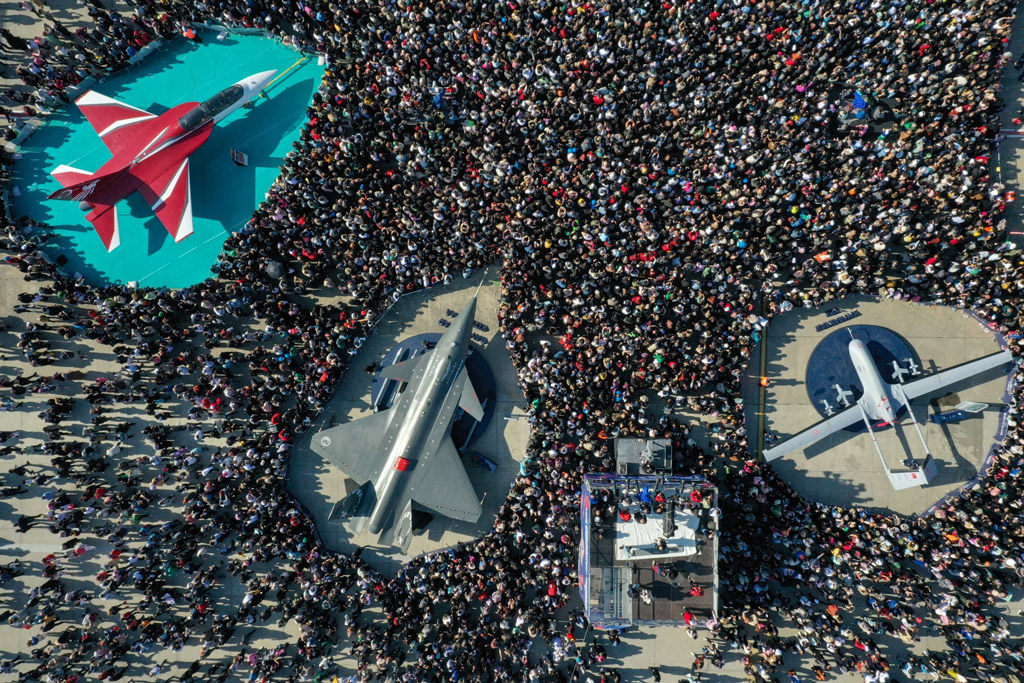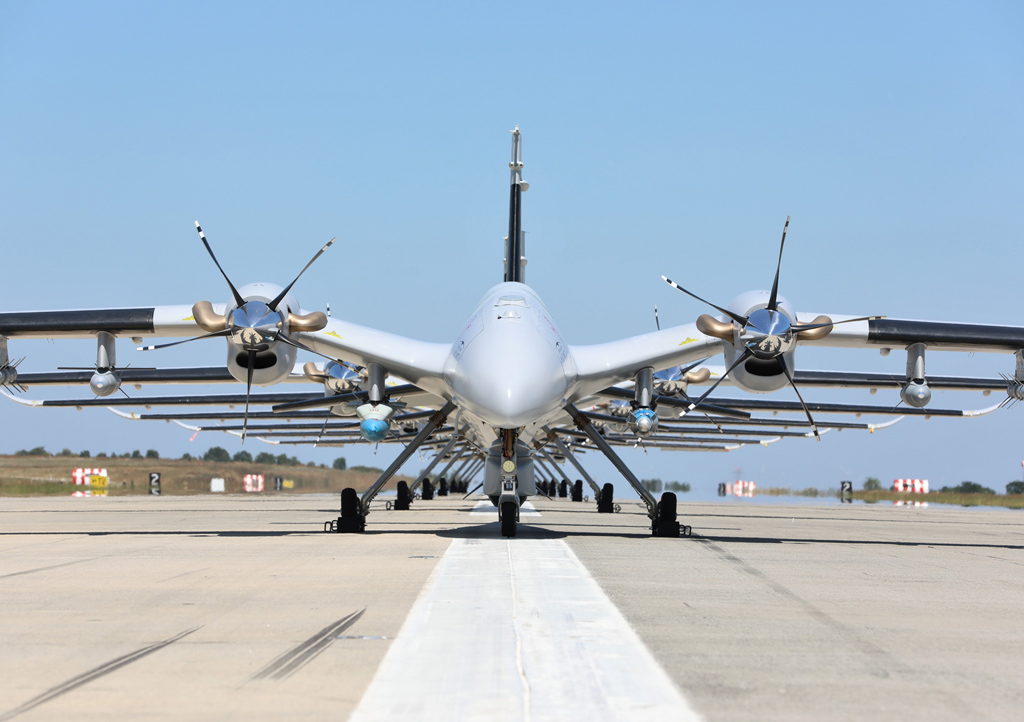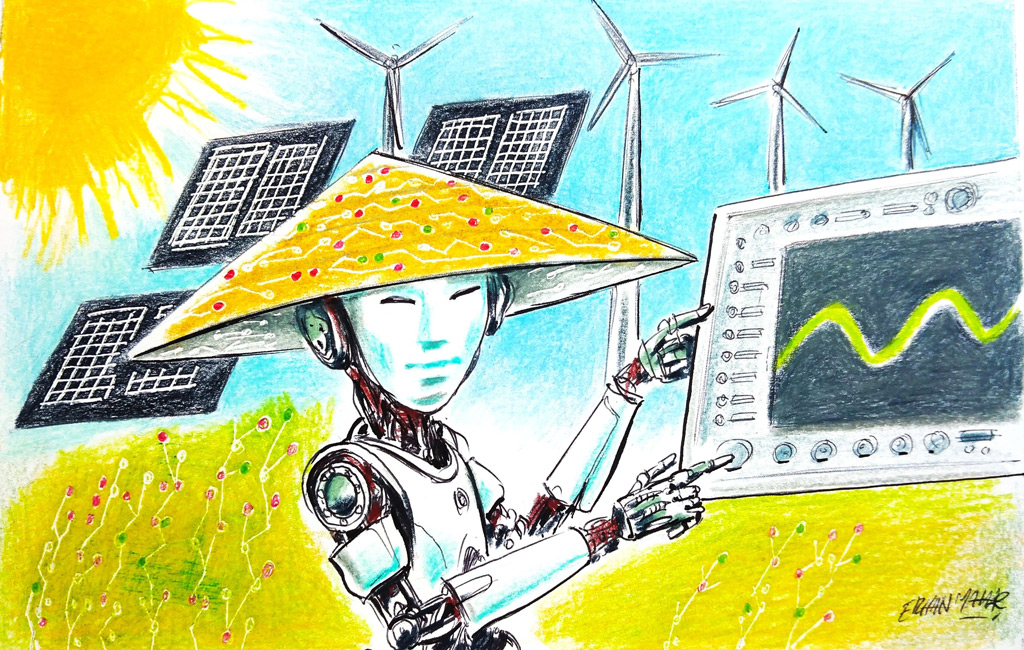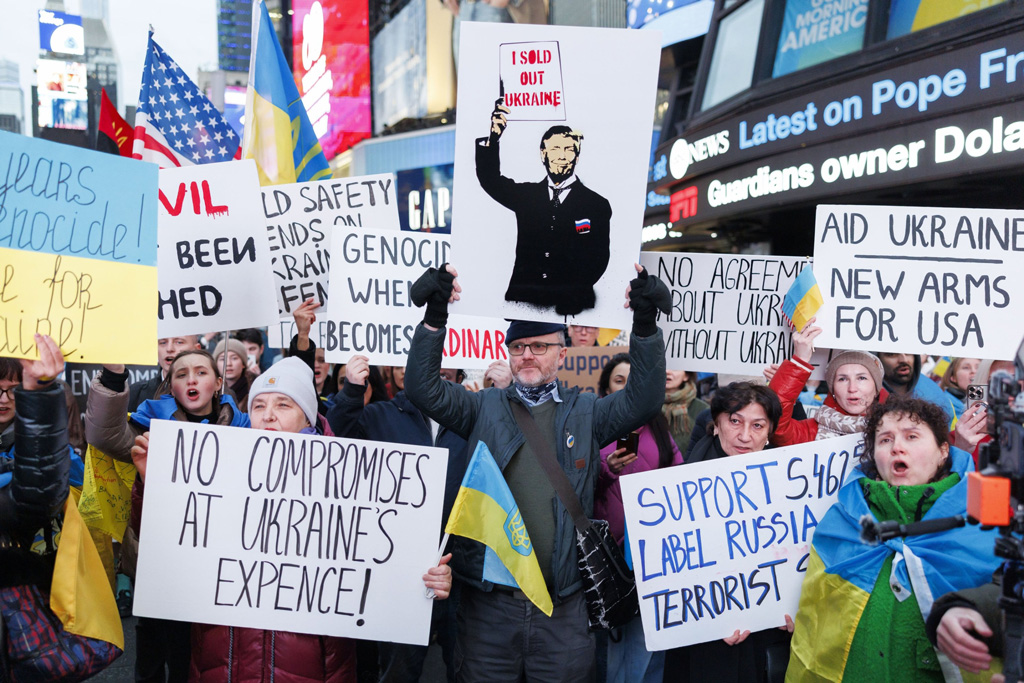On Jan. 21, 2025, United States President Donald Trump announced an unprecedented wave of investments in artificial intelligence (AI), marking a historic milestone in U.S. technological advancement. Trump declared a record-breaking $500 billion commitment to a coalition of AI companies, labeling the initiative “Stargate” and proclaiming that the U.S. was entering a new “golden age” during his second term. The announcement, titled “Stargate,” echoed the symbolism of past grandiose projects, such as President Ronald Reagan’s “Strategic Defense Initiative” (SDI), famously known as “Star Wars,” which aimed to challenge the Soviet Union during the Cold War era.
Former U.S. President Ronald Reagan’s SDI program emerged during a period of intense bipolar competition between the U.S. and the Soviet Union, epitomizing the dynamics of the Cold War. It aimed to establish technological superiority amidst fears of nuclear confrontation, reinforcing the strategic alignment of states within a bipolar international system. In contrast, the global order of 2025 reflects a far more complex and multipolar reality. States now navigate a fragmented system characterized by overlapping spheres of influence, where technological prowess, particularly in AI, plays a decisive role. The U.S. openly identifies China as its rival in the technological race, mirroring its past rivalry with the Soviet Union, albeit now focused on technological rather than purely political dominance. Moreover, the recent directives of former President Joe Biden's administration on regulating GPU exports underscore this competitive approach. These policies aim to extend U.S. influence by categorizing states into tiered lists, requiring them to align with U.S. strategic interests to gain access to advanced hardware. This further intensifies the U.S.-China rivalry, highlighting the critical role of technology in shaping modern geopolitics.
Trump’s “Stargate”
The “Stargate” project represents a groundbreaking collaboration between the U.S. government and leading private-sector companies. Key partners include OpenAI, SoftBank, Oracle and MGX, with additional contributions from Microsoft, Nvidia and Arm Holdings. Masayoshi Son, CEO of SoftBank, serves as chairman of the initiative alongside influential figures such as Sam Altman, CEO of OpenAI and Larry Ellison, co-founder of Oracle. The project’s initial $100 billion investment is allocated to constructing state-of-the-art data centers across the U.S. The first facility, already underway in Abilene, Texas, will provide the computational infrastructure required for training and deploying advanced AI systems. These data centers are crucial for supporting the growing demands of cutting-edge AI technologies and ensuring the U.S. remains at the forefront of AI innovation.
AI technologies are increasingly pivotal in enhancing efficiency across sectors such as education, health care, tourism, defense and space exploration. Beyond sectoral advancements, AI has become a cornerstone of strategic importance, contributing to competitive advantage and power projection on both national and international scales. However, advancing AI necessitates recognizing the critical interplay between software and hardware. While software capabilities often dominate discussions, hardware infrastructure enabling these technologies is equally vital.
The symbiotic relationship between hardware and software underscores the necessity of seamless integration to facilitate progress in AI technologies. Advanced software cannot reach its full potential without robust and compatible hardware. Achieving sustainable momentum and creating significant value in AI requires a holistic approach that integrates both dimensions.
While the “Stargate” project focuses on infrastructure, its implications extend far beyond hardware development. It signifies a strategic escalation in the global AI arms race, positioning the U.S. as a dominant actor in the emerging “techno-polar” world order. By consolidating U.S. dominance across the AI value chain – from research and development to deployment and governance – the “Stargate” project aims to shape global standards, dictate ethical frameworks and secure control over critical AI applications in defense, health care, finance and beyond. Additionally, the project is expected to generate over 100,000 jobs, significantly boosting the U.S. economy while reinforcing its global leadership in AI technology.
Biden’s tiered approach
Complementing “Stargate,” the Biden administration introduced a transformative policy concerning the export of graphic processing units (GPUs) for AI. Widely interpreted as a targeted restriction against China, this policy signifies a strategic pivot toward a tiered system that redefines global access to critical AI technologies. The system categorizes countries into three tiers:
Tier 1 encompasses 18 countries regarded as close allies of the U.S., including Australia, Belgium, Canada, Germany, Japan and the U.K. These nations theoretically enjoy broader access to AI processors but remain subject to stringent restrictions. For instance, Tier 1 countries are permitted to export only 25% of their imported processors outside the tier, with a further restriction allowing only 3% of exports to any single non-Tier 1 country. This framework demonstrates the U.S.’s cautious approach, even toward its allies, in safeguarding sensitive technologies. Additionally, high-performance AI GPUs designated for defense and critical infrastructure use require prior approval from the U.S., reflecting its intent to maintain comprehensive control over the dissemination of advanced technologies.
Tier 2 comprises countries from Eastern Europe, the Middle East, Latin America and other regions, including Türkiye. These nations face significant limitations in accessing AI-related hardware. For example, between 2025 and 2027, the total allocation for Tier 2 countries is restricted to 50,000 GPUs. Companies within Tier 2 countries may seek enhanced access through “Verified End User” status, contingent upon stringent compliance with U.S.-defined security protocols. These measures underscore the U.S.’s intent to maintain robust control over technology flows while reinforcing its geopolitical influence.
Tier 3 includes countries such as China, Russia, Iran and others under U.S. arms embargoes. These nations face near-total export prohibitions on AI hardware. The primary objective is to prevent these states from leveraging AI technologies to bolster military capabilities. This strict approach underscores the U.S.’s strategy of leveraging its technological dominance as a tool of geopolitical advantage.
What awaits Türkiye?
For Türkiye, classified as a Tier 2 country, these export restrictions present both challenges and opportunities. While the constraints limit access to critical AI technologies, they underscore the urgency for Türkiye to strengthen its technological independence.
Türkiye’s historical resilience in overcoming external dependencies provides a solid foundation for meeting these challenges. Building on its success in the defense industry, such as the development of UAV technologies that have become a global benchmark, Türkiye has the potential to repeat this success in AI and semiconductor technologies. By leveraging its dynamic entrepreneurial ecosystem, strategic geographical location and a young, tech-savvy population, Türkiye is well-positioned to address the gaps created by export restrictions.
To mitigate these challenges, Türkiye must prioritize developing domestic semiconductor production capabilities. Government incentives can support local chip manufacturers, while partnerships between universities and industry can foster the cultivation of skilled human capital. Strategic collaborations with nations like South Korea, Taiwan and European states can facilitate technology transfer, diversify supply chains and reduce dependence on external sources.
Furthermore, Türkiye’s National AI Strategy provides a robust framework for addressing these challenges. By focusing on designing and producing domestic GPUs and cost-effective AI hardware, Türkiye can enhance its self-sufficiency and contribute to global competitiveness. Investments in research and development, coupled with international partnerships, will be crucial in positioning Türkiye as a significant player in the global AI landscape.
Türkiye should also capitalize on its strategic role as a bridge between East and West. By fostering collaborations with both Western technological powerhouses and emerging Asian innovators, Türkiye can establish itself as a hub for innovation and a critical node in the global AI supply chain. Additionally, promoting policies that encourage entrepreneurship and innovation will amplify Türkiye’s ability to compete in the global market.
Türkiye’s efforts must also extend to educational reforms that prioritize STEM fields, incentivizing research in AI and semiconductor technologies. This long-term investment in human capital will be essential for sustaining innovation and ensuring that Türkiye remains competitive in an increasingly polarized technological landscape. By aligning its industrial policies with global trends, Türkiye can position itself as a key player in the evolving global tech ecosystem.
In the techno-polar world
The announcement of “Stargate” reflects an accelerating trend of technological polarization, where nations align themselves with competing technological and geopolitical axes. While the U.S. spearheads initiatives like “Stargate,” China continues to advance its “Made in China 2025” strategy, emphasizing AI as a cornerstone of its military and economic modernization. Similarly, the European Union aims to assert its strategic autonomy through regulatory leadership and targeted investments. Thus, it is safe to claim that the international system is evolving into a techno-polar world, where states are eventually forced to align themselves with techno-polar leaders, as was the case during the Cold War.
It can be argued that in the near future, the definition of a sovereign state will evolve into this: an autonomous actor capable of producing its own (semiconductor) chips, safeguarding its (cloud) data and developing its unique algorithms. Türkiye has the potential to actively participate in this transformation. By advancing its domestic and national capabilities in AI, Türkiye can redefine its role both regionally and globally. Success in critical technologies will not only ensure Türkiye’s strategic independence but also strengthen its influence within the international system. The U.S.’s “Stargate” project and tiered export regulations illustrate the shifting dynamics of global power. For Türkiye, these developments present a strategic imperative to invest in technological infrastructure and workforce development. With a long-term vision and effective policy implementation, Türkiye can transform these challenges into opportunities, solidifying its position as a leading nation in the emerging techno-polar world.
By embracing its unique geopolitical position, dynamic population and historical tenacity, Türkiye can turn these global challenges into a springboard for technological and strategic growth. Achieving independence in critical technologies is not merely a developmental goal but a national necessity. In doing so, Türkiye will not only protect its interests but also carve out a leadership role in the rapidly evolving global technological landscape, demonstrating that it is not just a participant but a shaper of the future techno-polar world.
Through focused investment, strategic international cooperation and a relentless commitment to innovation, Türkiye can ensure its place as a pioneering force in AI and related technologies. The techno-polar era will reward nations that act decisively and innovatively, a reality that Türkiye is well-prepared to embrace and excel in, shaping not only its future but also the trajectory of global technological development.

